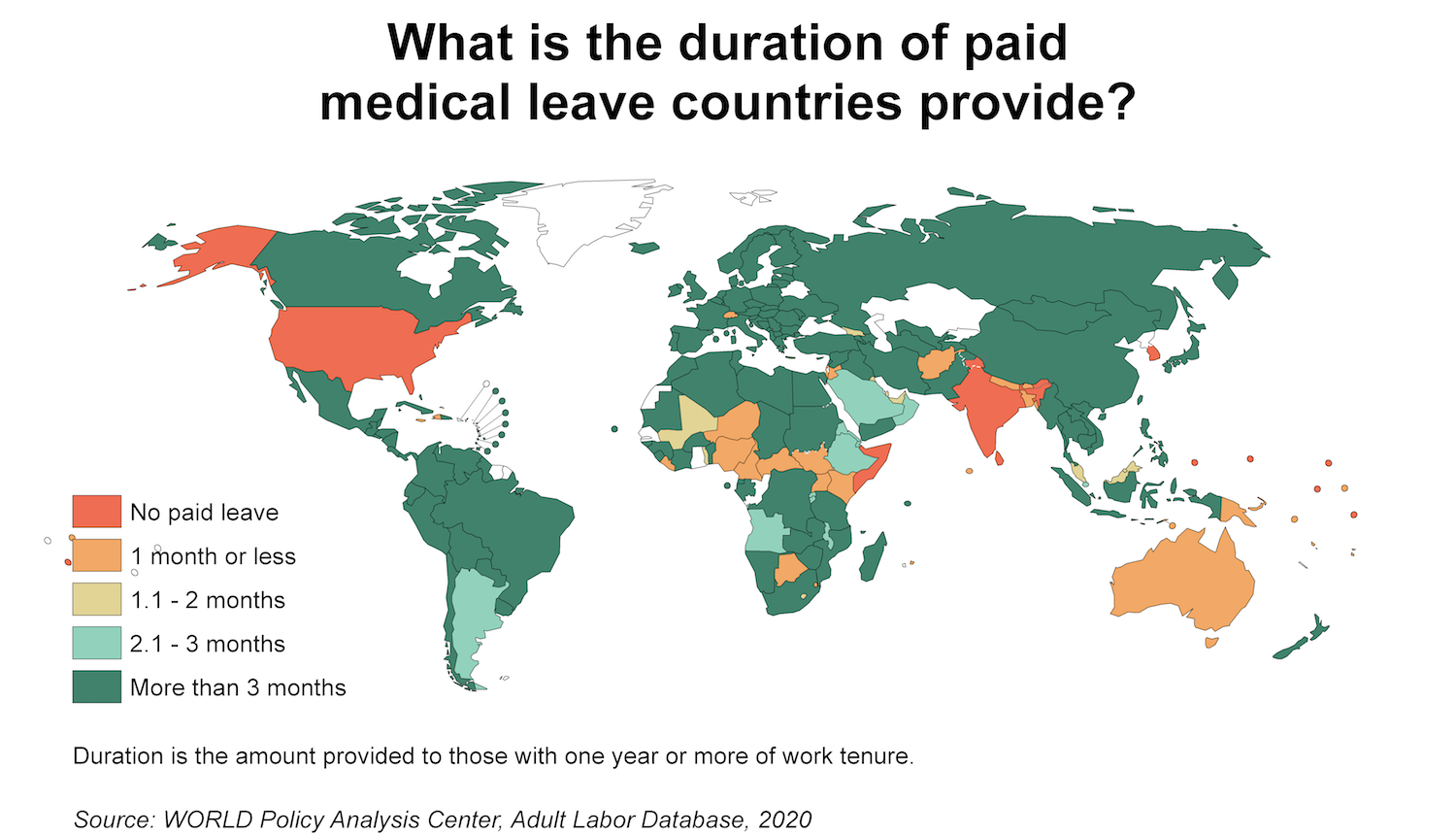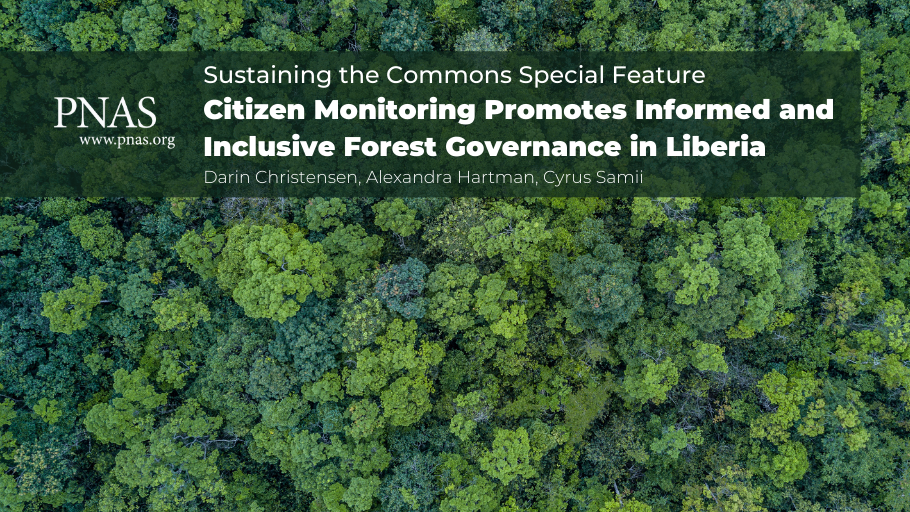Abrams Book Compiles Global Research on Child Imprisonment
A new book co-edited by Professor Laura Abrams, chair of UCLA Luskin Social Welfare, seeks to educate students, scholars and policymakers about the role of incarceration in young people’s lives. “The Palgrave International Handbook of Youth Imprisonment” compiles research from dozens of scholars from around the world on cross-cutting themes including the conditions of confinement, gender/sexuality and identity, juvenile facility staff, young people’s experiences in adult prisons, and new models and perspectives on juvenile imprisonment. “Numerous children are imprisoned across the globe in deplorable conditions, despite international legal conventions which suggest that children should be detained only as a last resort,” write Abrams and co-editor Alexandra Cox of the University of Essex. In addition to facing lengthy terms of imprisonment, a substantial number of children are exposed to abuse and violence in custody, poor health and mental health care, and a lack of access to educational, vocational and training opportunities. Some nations, however, have instituted reforms that have greatly decreased the number of children held in confinement. The handbook offers far-flung criminal justice systems the opportunity to learn from one another: “In this volume, we bring together views from a wide variety of countries and contexts to present the most recent cutting-edge research on youth imprisonment that has the potential to shape how the field can create better systems of care for all young people in conflict with the law.”
New Book by Segura Measures the True Cost of War
A new book co-authored by UCLA Luskin Dean Gary Segura measures the full cost of war by examining the consequences of foreign combat on domestic politics. In “Costly Calculations: A Theory of War, Casualties, and Politics,” published by Cambridge University Press, the authors employ a variety of empirical methods to examine multiple wars from the last 100 years. The human toll – the military dead and injured – is generally the most salient measure of war costs and the primary instrument through which war affects the social, economic and political fabric of a nation, according to Segura and co-author Scott Sigmund Gartner, provost of the U.S. Naval Postgraduate School. Their work provides a framework for understanding war initiation, war policy and war termination in democratic polities, as well as the forces that shape public opinion. “War-making is not just strategic but also represents a political action of some consequence filtered through a societal lens,” the authors write. “Leaders embark upon a course of conflict with an eye on the level of public support, work hard to win that support if it’s missing, actively attempt to manage public beliefs about the conflict and its costs and benefits, and may suffer the political consequences when the people viewing a conflict through the eyes of their communities believe that they miscalculated.”
U.S. Sick and Medical Leave Policies Widen Racial Inequalities, Study Finds
Paid sick and medical leave is a powerful tool for preventing the spread of COVID-19 and other diseases and ensuring all workers have access to treatment, yet tens of millions of American workers lack coverage. The U.S. is one of just 11 countries in the world without a national, permanent paid medical leave policy, according to new research led by Jody Heymann, distinguished professor of public health, public policy and medicine. Further, unpaid leave provided by the U.S. Family and Medical Leave Act (FMLA) is restricted by eligibility rules that have created marked racial and gender gaps, said Heymann, who directs the WORLD Policy Analysis Center at the UCLA Fielding School of Public Health. The study, published in Health Affairs, included these findings:
- In the private sector, 18.7% of Latinas, compared to just 8.4% of white men, lack access to FMLA leave because of its minimum annual hours requirement.
- Requiring one year with the same employer excludes higher shares of Black (22%), Indigenous (22.9%) and self-identified multiracial (27.7%) workers than white workers (19%).
- Over a third of private-sector workers are employed by a business with fewer than 50 employees, making them ineligible for FMLA benefits.
The study’s analysis of data from 181 countries found that providing paid sick and medical leave to all workers — including the self-employed, a group commonly excluded from key social security and labor protections — is readily achievable. “Only by ensuring we design our paid leave policies to reach every worker can we protect public health and take one important step toward rectifying the longstanding and devastating racial and socioeconomic inequalities that have only intensified during this pandemic,” Heymann said.
Luskin Career Bootcamp Equips Graduates for Job Search
UCLA Luskin graduate students from the Class of 2021 gained valuable knowledge about searching for and securing a job through a two-day virtual Career Bootcamp. The series was designed by Luskin Career Services to help current and recently graduated students jumpstart their job search and learn about networking, interviewing and offer negotiation. At the beginning of the July 13-14 event, students and graduates described their current job search status, which allowed the Career Services team to tailor the sessions to the needs and goals of individual participants. Technology is always transforming the way that people find jobs, and the pandemic has brought new changes to the job search process. Attendees learned about the importance of tailoring a cover letter and resume to rank well in applicant tracking systems, which are largely automated. The Bootcamp also highlighted the importance of networking, noting that 70% of all jobs are not published publicly on job sites and up to 80% of jobs are filled through personal and professional connections. Counselors recommended building genuine relationships and making networking a habit, not just something you do when you need a job. Day 2 of the Bootcamp provided insights about interviewing for a job, both virtually and in person. Attendees also learned about factors to consider when evaluating initial salary and benefit packages before accepting a final job offer. The Luskin Career Services team is available for one-on-one counseling appointments for career guidance and exploration, resume and cover letter critiques, mock interviews and other career-related topics. — Zoe Day
Study Measures Americans’ Growing Medical Debt
Over the last decade, medical bills have become the largest source of debt that Americans owe collection agencies, according to new research co-authored by Associate Professor of Public Policy Wesley Yin. The $140 billion in unpaid health care bills, held by about 18% of Americans, now exceeds all other debt in collections combined, according to the paper just published in the Journal of the American Medical Association (JAMA). Only debts referred to collection agencies were measured; other unpaid bills owed to health-care providers would push the total amount of debt even higher. Yin and co-authors Raymond Kluender of Harvard Business School, Neale Mahoney of Stanford University and Francis Wong of the National Bureau of Economic Research examined records from the credit rating agency TransUnion from January 2009 to June 2020, reflecting medical care delivered prior to the COVID-19 pandemic. Their comprehensive look at the evolution of medical debt reveals that, while Americans’ household finances largely recovered after the Great Recession, medical debt continued to grow. Yin said the debt was most concentrated in low-income communities and in the South. He added that, in 12 states that chose not to expand Medicaid coverage, significant disparities grew even worse during the period studied. “Addressing the problem of medical debt in the U.S. health care system must be a high priority,” said the authors of a JAMA editorial accompanying the study. “In addition to the potential consequences for health and health care use, the economic and social ramifications of medical debt are likely equally consequential, if not more so.”
Citizen Monitoring May Help Forest Conservation Globally
A UCLA-led study is part of special collection of reports released today by Proceedings of the National Academy of Sciences of the United States of America (PNAS) focused on at-risk global natural resources. The combined studies, “Sustaining the Commons,” represent the work of teams who focused their research on six regions of the world, including Africa, Amazonia and China. Each team analyzed the role that community monitoring of common-pool resources, such as forests and water, can play to support sustainable management of those natural resources. Darin Christensen, assistant professor of public policy and political science at UCLA Luskin, and his team focused on a yearlong program of community monitoring efforts in Liberia. The African nation is experiencing a relatively rapid deforestation due to timber sales and the conversion of land for small-scale and commercial agriculture, according to Christensen. “The benefits from this economic activity are not broadly distributed: Those in power amass benefits, while many Liberians see forests cleared and little compensation,” said Christensen, who worked with political scientists Alexandra C. Hartman of University College London and Cyrus Samii of New York University. “The status quo is untenable,” Christensen said. “Environmentally, it’s permanently degrading forests; socially, it’s entrenching inequality and poverty.” Christensen and colleagues found that the program helped rural communities in Liberia monitor communal forests by increasing knowledge about land management. However, the program did not decrease deforestation, suggesting that communities may need compensation to forgo forest use. “Collectively, we hope the studies demonstrate that empowering communities can help to improve the management of natural resources,” Christensen said.
UCLA Research Finds U.S. Lags Behind Other Nations in Limiting Detention of Migrant Children
The COVID-19 pandemic has amplified calls to end the detention of migrant children, as cases surge among children held in crowded conditions. Yet immigration detention’s threats to the fundamental rights of children did not begin with the current public health crisis. Unlike nearly three-quarters of high-income countries, the U.S. has no laws specifically limiting the detention of accompanied migrant and asylum-seeking children, according to a new study by the UCLA Fielding School of Public Health’s WORLD Policy Analysis Center (WORLD). Moreover, the U.S. offers minimal legal protection for unaccompanied minors, and for children who are detained, and the U.S. has no legal guarantees of access to adequate health care or education. “The U.S. lags behind when it comes to protecting the most fundamental rights of migrant children,” said Jody Heymann, a UCLA distinguished professor of public health, public policy and medicine who serves as director of WORLD. International treaties are clear that detaining children based on citizenship is a violation of human rights law. Heymann and her research team systematically coded legal restrictions on detention of child migrants in the 150 most populous United Nations-member countries, as well as literature on the costs and benefits of varying approaches to keeping such children safe and under responsible oversight. Their study, published in the International Journal of Human Rights, found that while the U.S. falls behind other high-income nations, gaps in legal protections persist across the board. “These longstanding gaps in the law have left countless children vulnerable to grave health risks and human rights violations,” Heymann said.






